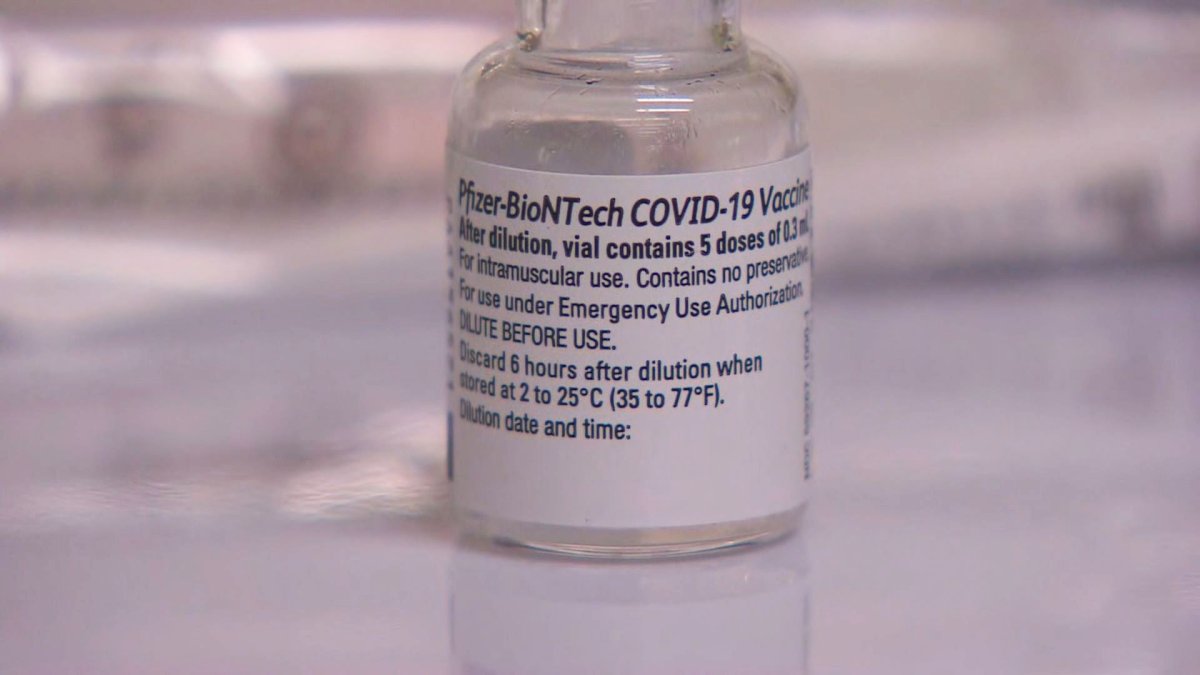Scoring a leftover dose of COVID-19 vaccine is like winning the lottery. But who should be allowed to play?

Canada has approved two vaccines so far: one from Pfizer-BioNTech and another from Moderna. Both have a limited shelf life after thawing, therefore appointment no-shows can mean leftover doses at the end of the day.
In the USA, people of all ages have been posting tips about how to snag a surplus shot on websites like Vaccine Hunter.
Some TikTok users have made joyful videos about their success after waiting in pharmacy standby lines. A Tennessee news outlet reported Nashville was running a raffle — drawing a few names each day to come get a shot within 30 minutes.

In Canada, COVID-19 vaccines are harder to come by. Shipment delays have slowed roll-out efforts, leaving priority groups waiting for their second or even their first dose. Yet some non-priority Canadians have already received a shot.
“I think (Ontario) set a really negative precedent for the rest of the nation,” Dr. Kerry Bowman told Global News.
The Toronto bioethicist points to examples of Ontario hospitals vaccinating non-frontline staff. One long-term care home in the province allegedly vaccinated family and friends of board members and staff.
In Alberta, at least two fire chiefs in St. Albert are also accused of jumping the queue.
While no one wants the precious commodity to go to waste, Bowman says there is no excuse for vaccines not going to vulnerable people right now.
“In most cases, it’s not hard to find people that meet those protocols. Whether you’re in a hospital or a long term care facility, it can be done,” Bowman said.
“No one should be (vaccinating) without that plan before they start.”
Some are calling for a national policy on what to do with leftover doses. At a news conference on Feb. 9, Canada’s chief public health officer Dr. Theresa Tam said such policies are up to provincial and local authorities.
“What we do try and share is best practices and making sure that provinces can share how they reduce any kind of wastage,” Tam said.
“Nobody wants to waste (vaccines) so any way in which people can get them into people’s arms is really critical.”

Some provinces have clear guidelines. Alberta Health Services has created a “wastage strategy,” with an “evolving list of eligible individuals” according to an email from AHS spokesperson Kerry Williamson.
The list includes people who already have a vaccination appointment booked and people who are over the age of 75, but are not yet eligible.
Williamson said Alberta’s current waste levels of COVID-19 are “extremely low” at 0.2 per cent.
Infectious diseases physician Stephanie Smith points out a one-size-fits-all approach to distribution may not work in remote areas.
“I think that there has to be a little bit of flexibility based on infrastructure and location,” Smith said.
Bowman predicts Canadians may one day look back at the history books in disbelief.
“We had active outbreaks right there, and we were giving away vaccines to peripheral people.”
Here’s a brief look at what we know about the Moderna and Pfizer vaccines:
Moderna
Headquarters: Cambridge, Mass.
About the vaccine: Messenger RNA (ribonucleic acid), a genetic component that carries genetic information of a virus. The mRNA vaccines inject part of the code from the SARS-CoV-2 virus, which then train the immune system to recognize the virus and mount an immune response against it. Moderna partnered with Lonza, which is manufacturing the vaccine.
Storage: Vaccine is frozen between -15 C and -25 C, can be kept in a refrigerator between 2 C and 8 C for up to 30 days.
Doses: Two, 28 days apart.*
Effectiveness: Trials showed it to prevent serious illness from COVID-19 in 94 per cent of patients.
Canadian purchase agreement signed: July 24, 2020.
Doses purchased: 40 million. Initial purchase was 20 million doses with option for 36 million more. Canada exercised the option to buy 20 million more in early December. The remaining optional doses expired in December. Canada expects all 40 million doses to be delivered by the fall.
Status in Canada: Approved by Health Canada Dec. 23, 2020 for use on Canadians 18 years and older.
Pfizer-BioNTech
Headquarters: Pfizer is headquartered in New York City and BioNTech in Mainz, Germany.
About the vaccine: Like Moderna’s, it is an mRNA vaccine. BioNTech developed the technology and partnered with Pfizer for further research, manufacturing and commercialization.
Storage: Vaccine must be kept at ultralow temperatures, between -60 C and -80 C. It is shipped on dry ice to keep it cold between freezers. Can be thawed to room temperature up to five days before use. It must be mixed with sodium chloride before injection and after mixing, can be kept at room temperature up to six hours.
Doses: Two, 21 days apart.*
Effectiveness: Prevented serious illness in 95 per cent of patients.
Canadian purchase agreement: Aug. 1, 2020.
Doses purchased: Canada got 20 million guaranteed doses with an option for 56 million more. It has exercised the options for another 20 million doses in 2021. Pfizer is to deliver four million doses by March 31 and most of the rest by Sept. 30.
Status in Canada: Approved by Health Canada Dec. 9 for Canadians 16 years of age and older.
* The National Advisory Committee on Immunization in Canada says the vaccines should be given on schedule where possible but if there are supply shortages, the second dose could be delayed up to six weeks, instead of the three or four weeks recommended.
— With files from Mia Rabson, The Canadian Press




Comments